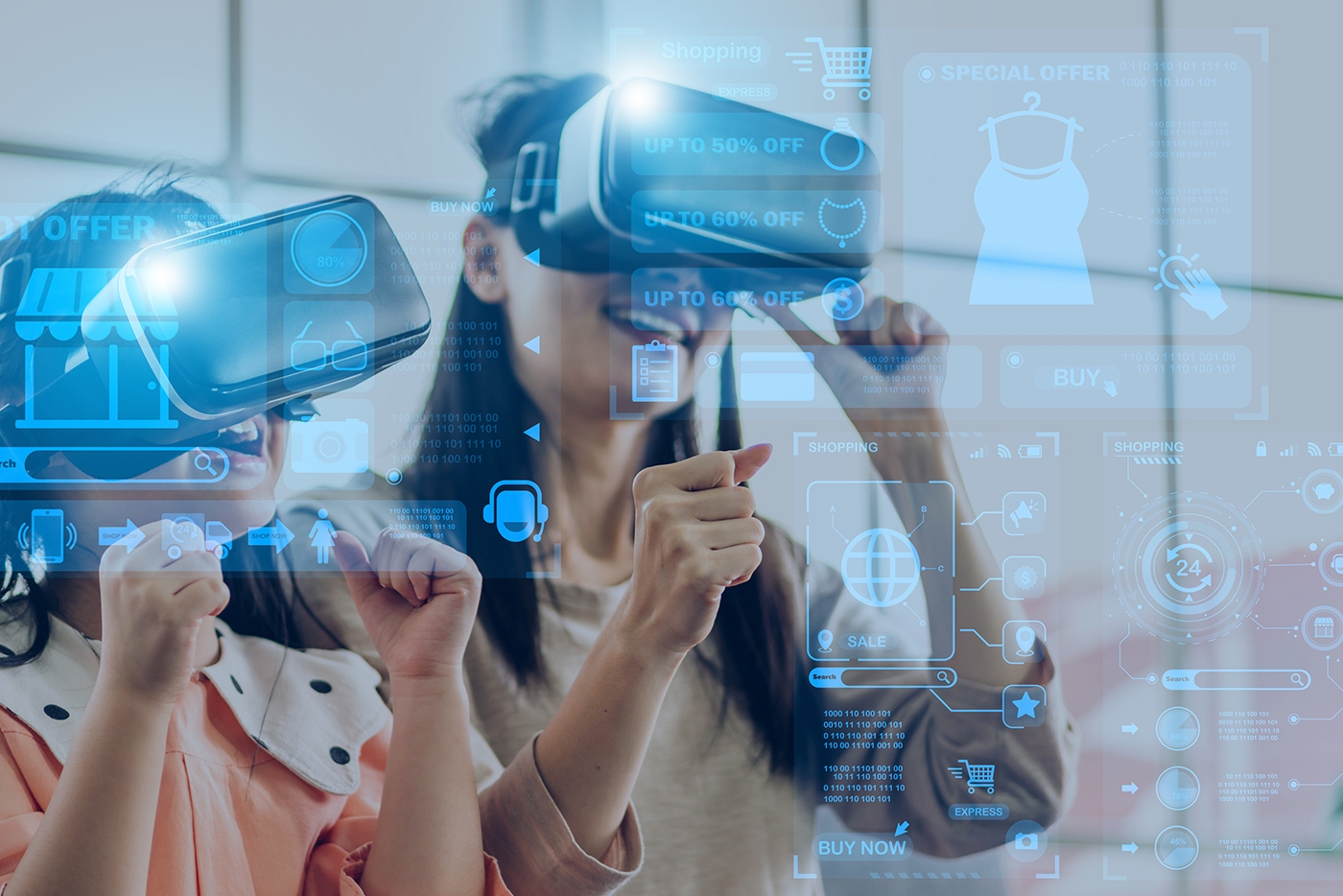The 5 Biggest Misconceptions About The Metaverse
20 June 2023
The metaverse is a giant online game – and it’s virtual reality (VR) – and it’s blockchains. In fact, there are a great many definitions of what the metaverse “is” – probably close to many as there are people trying to describe it.

One thing the metaverse certainly is, it is confusing. In fact, Apple boss Tim Cook has implied he thinks that part of the reason it will never catch on is that no one is really sure what it is. My view is that the metaverse is simply a catch-all term that’s being used to describe the next stage in the evolution of the internet – whatever that may be.
When it eventually arrives (and it will, unless we think the internet has evolved as far as it ever will), we might not even call it the metaverse. In fact, I hope we won’t, as I don’t particularly like the term. It already has too many negative and confusing connotations, from being an over-hyped bubble of speculative investment to being closely linked with the dystopian sci-fi universes where it first emerged.
But I do believe that many of the technologies that we vaguely group together today and call “the metaverse” will play a vital part in the next iteration of our digital lives – whatever we call it. And clearing up some common misconceptions could help us to visualize what it will look like and help to prepare for the day it arrives. So, here are five of the most common misconceptions that I come across when I talk to people about the metaverse.
The Metaverse Is Just Another Word For VR
VR – fully immersive virtual worlds that we experience through a headset as if we were actually there – certainly plays a part in many ideas about how the internet will evolve. Meta’s (formerly Facebook) Horizon virtual worlds are a good example of one company’s interpretation of the metaverse. VR fulfills one of the key elements of how we will interact with the online world in the future. It will be more immersive, with more of a sense of presence, allowing us to engage in digital experiences more closely to how we interact with the real world.
But VR on its own doesn’t offer a connected experience – it’s often solitary, and the metaverse will be about sharing experiences and interacting with other people. It also isn’t persistent, meaning that often when we switch it off, it vanishes. Changes we made to whatever environment we are interacting with might be reset, and other people who come along might have their own experience rather than building on whatever we have created. Its virtual worlds often exist as "instances" which appear and disappear as we put on or remove our headsets rather than as persistent environments that we can share.
Add connectivity and persistence to a VR world, and we are getting close to something that might be described as a metaverse. However, other interpretations of the metaverse might be entirely two-dimensional, experienced through a screen or smartphone. Headsets can be big, bulky, and expensive, and although they are becoming more common in industry, they haven’t yet become fully mainstream consumer technology. We will have to wait and see whether they will play an important role in how we engage with the online worlds of tomorrow, but it’s likely they will become smaller, lighter, and cheaper, and therefore more practical as time goes by.
The Metaverse Is About Blockchains and Cryptocurrencies
Again, this is a view of some of those who are building certain metaverse projects – those that are lumped under the category of “web3” and built on principles of decentralization and shared ownership. There are many others, however, that believe it’s unlikely that the big tech corporations that own the present-day internet (and the governments that regulate them) will give up control of it; however, it may evolve in the future.
Cryptocurrencies are virtual money that is administered via a distributed ledger called a blockchain. Some believe that they will become the default method of storing value and paying for goods and services in the metaverse. And it’s certainly true that they provide advantages over traditional currencies in this regard. For example, allowing digital money to be sent and received without the need for a middle-man such as a bank or credit card company. However, they also often use large amounts of energy to power the required calculations. And because the cryptocurrency space is largely unregulated, it’s rife with scams, frauds, and dodgy business models (the recent collapse of the giant cryptocurrency exchange FTX being a prime example).
These are issues that are likely to improve in the future as regulators gain a better understanding of how they can work within the space and new technologies reduce energy usage. However, cryptocurrencies and blockchain technology are not essential to the concept of the metaverse.
The Metaverse Is Separate From The Real World
People often have the idea that the metaverse is solely about virtual spaces that bear little relation to the real world. But some of the most exciting and interesting applications revolve around creating “digital twins” of the world we live in, in order to help us to better understand and interact with it.
This can happen on many levels. As a very basic and simple example, a connected virtual world can be educational – the game Minecraft, for example, has been used to create virtual environments that can teach children how everything from mathematics to history works in the real world.
Going a little further, the digital twin is a simulation of a real-world system that can exist within a metaverse environment – in three dimensions via VR or in two dimensions on a screen. It could be anything from a car engine to a forest or the human body. Data is collected and fed into the simulation through sensors or other devices to make the simulation behave as closely as possible to reality, and we can alter parameters to see how they would affect the system we are simulating in reality. More advanced applications of this technology allow us to view and interact with the real world using augmented reality (AR) devices that project data from the simulation on top of what we see in reality. For example, a surgeon could receive real-time information about what they are seeing inside a person as they carry out an operation. Or an architect can experience the way a building will look and work on a site before a single brick has been laid.
There Will Only Be One Metaverse
It’s more likely that “metaverse” will be a collective term for the many different virtual worlds, working environments, and simulations that will provide our online experiences in the future. Just as the term "internet" actually covers a variety of networks and systems, such as the World Wide Web, that serves up web pages, email networks, and the vast ecosystem of apps and services we use via our phones and smart devices.
It's uncertain as of yet how inter-connected these networks might be. Some, such as the creators of avatar creation platform Ready Player Me, are working towards a future where a virtual avatar can move between different metaverse platforms. And it’s possible that cryptocurrencies and blockchains will make it possible to move money and virtual goods in the form of non-fungible tokens (NFTs) between digital worlds, game environments, and collaborative working tools.
But in my opinion, it's unlikely that the future will bring us one unified virtual space, platform, or technology that we simply call "the metaverse" and is our one-stop destination for playing, shopping, working, communicating with friends, and relaxing. As we’ve seen with the current iteration of the internet, there are many platform providers – such as Facebook, Google, or Amazon – that purport to offer everything we need to live our lives online. But in reality, they all tend to be strong in certain areas and weak in others. The next iteration is likely to be similar, with a number of platforms we can jump between in order to pick and choose the experiences we prefer.
The Metaverse Will Be Dystopian
In books and movies, there are often dark undertones to the idea of living our lives in a virtual world. In Ready Player One, for example, it’s a way of escaping from the unpleasant realities of life on a polluted and over-industrialized planet Earth. In The Matrix (spoiler alert), it's a way for robots to enslave humanity.
Even more down-to-earth ideas about what’s happening already often cause us to express caution or distaste. Should we really be working towards a future where we spend more of our lives than we already do connected to screens? Are we harming the mental development of children? Or causing fractures to emerge in society as we spend less time interacting face-to-face and building interpersonal relationships with those around us? Does conducting even more of our day-to-day business and activities online mean handing even more power to global corporations that exist primarily to make money from us?
These are all very valid and real concerns, but to accept that they are all inevitable is a misconception. The concept of the metaverse could have the potential to enrich our lives in numerous ways, from building virtual communities that bring more people together to improving our skills and abilities in engineering, science, and medicine.
Ultimately the way the metaverse – which, as we've discussed, really just means the digital side of reality – evolves will be down to us. If we are happy to accept giving corporations more power (or letting robots rule us) in exchange for comfort and convenience, then that’s what we’re likely to get. But if we insist that it should be implemented in a way that allows us to grow as a society while deepening our connection with each other and the “real” world around us, then it will be a benefit to us all.
Related Articles
Agentic AI: The Next Big Breakthrough That’s Transforming Business And Technology
The world of artificial intelligence is evolving at a breakneck pace, and just when you thought you'd wrapped your head around generative AI, along comes another game-changing concept: agentic AI.[...]
The Employees Secretly Using AI At Work
Imagine walking into your office and noticing your colleague Sarah effortlessly breezing through her tasks with uncanny efficiency.[...]
Sign up to Stay in Touch!
Bernard Marr is a world-renowned futurist, influencer and thought leader in the fields of business and technology, with a passion for using technology for the good of humanity.
He is a best-selling author of over 20 books, writes a regular column for Forbes and advises and coaches many of the world’s best-known organisations.
He has a combined following of 4 million people across his social media channels and newsletters and was ranked by LinkedIn as one of the top 5 business influencers in the world.
Bernard’s latest book is ‘Generative AI in Practice’.






Social Media